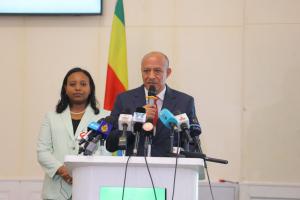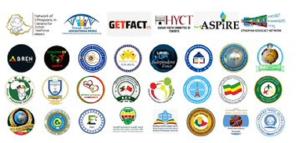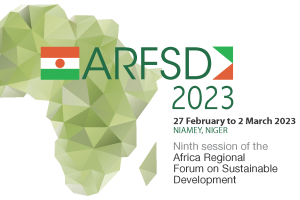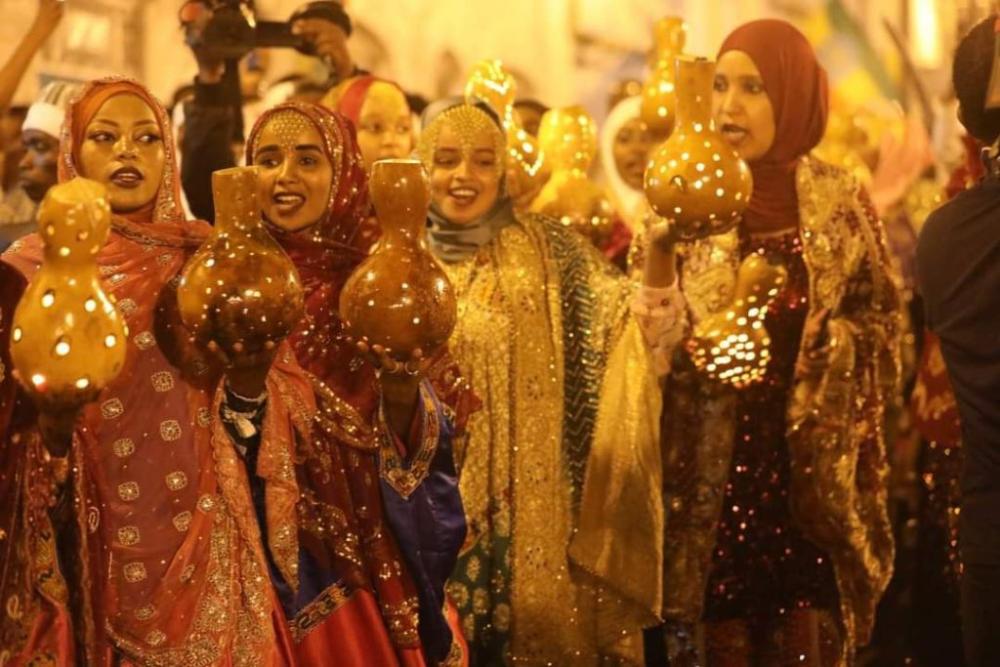ENA - ENA English
Headlines
Addis Ababa Mayor, US Ambassador Discuss Bilateral Cooperation
Apr 16, 2024 187
Addis Ababa, April 16/2024 (ENA) Mayor of the Addis Ababa City Administration, Adanech Abiebie and ambassador of the United States of America to Ethiopia, Ervin Jose Massinga discussed on bilateral cooperation. On the occasion, the two sides exchanged views on the ongoing development activities in Addis Ababa, the Mayor said on her social media. Additionally, they have also discussed on ways how the two sides can enhance cooperation and strengthen relations between Addis Ababa and sister cities in the US.
Germany Donates Medical Equipment Worth 3.6 Million Euros to Hospitals in Ethiopia
Apr 16, 2024 224
Addis Ababa, April 16/2024 (ENA) The government of Germany donated ICU medical equipment and other materials totaling 3.6 million euros to eight teaching hospitals in Ethiopia. NIRAS Germany, project Team leader, Gert kluge handed over the equipment to Infrastructural Development and Supply Desk Head at the Ministry of Education, Zewdu Kassa today. Speaking on the occasion, Gert kluge said the support provided by the German Development Bank, KFW through the German Financial Cooperation to Ethiopia’s Ministry of Education (MoE) for capacity building and development in the biomedical sector in Ethiopia. The provision is part of 16.5 million Euro grant support launched in 2020 to support College, teaching hospitals, and Universities in different regions of the country, he added. The support aims to enhance and extend the training of biomedical technicians and engineers while upgrading medical care in the hospitals, according to kluge. “We the Biomedical project from the NIRAS Germany got the mandate from both governments to execute the procurement of equipment and tools, including the installation and the onsite training.” The Team leader further said ‘’Today, we present the first in a series of procurement that includes more than 843 piece of ICU and OR medical equipment such as ICU beds, ventilator, oxygen concentrates, patient monitors among others.” In addition, 109 pieces of Tool kits and instruments for Biomedical maintenance workshops are included in the items, he added. Infrastructural Development and supply Desk Head at the Ministry of Education Zewdu Kassa said the purpose of the project is to improve Technical and vocational Education and Training system as the Higher Education System in both quantitative and qualitative terms in the area of Biomedical Training. Beyond enhancing the capacity of the hospitals, the support will also contribute in ensuring the quality of education in the field of area as well as enhances the skill of maintenance in medical equipment and improve existing medical services rendered in the hospitals. Human Resource Development and Improvement Lead Executive Officer at the Ministry of Health Assgid Samuel also said the medical equipment will help to further strengthen the existing the medical services to patients. The items will be distributed to 8 teaching hospitals including Dilchora Hospital, Dessie Referral hospital, Adama Hospital, Felege- Hiwot Referral Hospital, Ayder Referral hospital, and Arbaminch Referral hospital, Black Lion (Tikur Anbessa) Specialized Hospital, and Jimma University Medical Center.
Ethiopia's Indigenous Knowledge Plays Huge Role in Governance, Scientific Discoveries: American Prof.
Apr 16, 2024 253
Addis Ababa, April 16/2024 (ENA) Indigenous knowledge plays huge role in the development of both in modernizing governance and scientific discoveries, California University Anthropology Professor Donald L. Donham said. An on-going three-day workshop on culture and history opened at Jinka University yesterday. California University Anthropologist Professor Donham noted that Ethiopia has remarkable wealth of indigenous knowledge and cultures. The professor with over five decades of research activities across, Africa, including Ethiopia, has published books on sociological and political issues. According to him, most of his research and study years have been dedicated to Ethiopia, and believes that the country is endowed with beautiful landscapes and diverse cultures. The paper presented by Professor Donham, "Ethiopia's Foundation and Indigenous Knowledge for Conflict Resolution," emphasizes the role of multi-culture and multiple identity for the emergence of the new Ethiopia. He explored the critical role indigenous knowledge from various cultures plays in shaping modern governance and scientific discoveries in Ethiopia. The professor also underscored the power of traditional conflict resolution methods embedded within indigenous knowledge to foster solidarity and promote lasting peace. Professor Donham finally called on universities and research institutions to actively develop and integrate these valuable systems into modern governance practices and Ethiopia's scientific advancements. Jinka University Academic Vice President, Elias Alemu, said the aim of the workshop is to foster collaboration between historians and social scientists. He envisions that the gathering would serve as a catalyst for universities and research institutes, both within and beyond Ethiopia's borders, to work together in research endeavors. Hawasa University Social Anthropology lecturer, Hana Getachew, on her part stressed the importance of the workshop in fostering a global exchange of knowledge and experience. She emphasizes the need for social scientists to transcend disciplinary boundaries, urging researchers to delve into diverse cultures and unearth the wealth of crucial, yet often forgotten, values embedded within them.
Wingu Africa Achieves Tier III Certification for Data Center
Apr 16, 2024 190
Addis Ababa, April 16/2024 (ENA) -Wingu Africa Group Limited, a leading data center provider in Ethiopia, has achieved Tier III certification from the Uptime Institute for its facility in the ICT Park, Addis Ababa. Wingu Africa has successfully met the stringent requirements, ensuring the facility's ability to withstand maintenance activities and unexpected failures without impacting critical IT functions, it was learned. Uptime Institute is a Global Digital Infrastructure Authority, headquartered in New York, NY, with main offices in London, São Paulo, Dubai, Riyadh, Singapore, and Taipei. This prestigious certification, awarded by the institute, affirms the data center's adherence to stringent industry standards for concurrent maintainability and fault tolerance. State Minister of Innovation and Technology, Yeshurun Alemayehu, hailed the certification as a remarkable feat for Ethiopia, lauding the certification as a significant milestone in Ethiopia's digital transformation journey. He emphasized the crucial role of data centers in supporting the country's digital transformation and expressed the government's commitment to assisting investors in this sector. This significant achievement further solidifies Wingu Africa's commitment to delivering secure and resilient data infrastructure, while positioning Ethiopia as a dynamic hub for innovation and development, the company announced. Chief Strategy Officer at Wingu Africa , Nicholas Lodge, on his part expressed his delight in fulfilling all eligibility criteria for Tier III certification. He said the Tier III certification, recognized globally by the Uptime Institute, affirms the data center's adherence to the highest industry standards for concurrent maintainability and fault tolerance. He further said that Wingu Africa's data center in the ICT park, Addis Ababa, successfully met the stringent requirements, ensuring the facility's ability to withstand maintenance activities and unexpected failures without impacting critical IT functions. The rigorous evaluation process conducted by the Uptime Institute encompassed the facility's design, construction, and operational capabilities, he added. Country Director of Wingu Africa , Teshome Worku, expressed that the escalating demand for up-to-date data centers in the finance, banking, and telecom sectors. Teshome emphasized the company's dedication to meeting this demand by establishing a world-class data center with 200 racks and a 2.5-megawatt consumption system. This colocation data center plays a vital role in safeguarding sensitive data within Ethiopia, bolstering the country's data protection laws, he said. The company remains steadfast in its commitment to providing cutting-edge data solutions that empower businesses across the region, promoting Ethiopia's digital transformation journey and fostering innovation and development in East Africa, he said. A Pan-African Data Center operator, wingu.africa built with the total outlay of 50 million US dollars at ICT Park in Addis Ababa, was inaugurated last year.
ASTEWLOT Film Inaugurated in Presence of PM Abiy Ahmed
Apr 16, 2024 189
Addis Ababa, April 16/2024 (ENA) ASTEWLOT, a film produced by the Ethiopian Artificial Intelligence Institute inaugurated today in the presence of Prime Minister Abiy Ahmed. Director General of the Institute, Engineer Worku Gachena highlighted the importance of Artificial Intelligence (AI) for future betterment of the world. The Director General hailed Prime Minister Abiy for his immense contribution for the development of the sector citing the establishment of the institute and the encouraging achievements so far registered in the sector. He said currently the institute is engaged in various activities vital for the advancement of the country stressing the need to intensify efforts to further strengthen the sector. ASTEWLOT is a scientific film based on a true story, it was learned. The film is produced by the institute in collaboration with Sewgna Films Production Company.
Politics
Addis Ababa Mayor, US Ambassador Discuss Bilateral Cooperation
Apr 16, 2024 187
Addis Ababa, April 16/2024 (ENA) Mayor of the Addis Ababa City Administration, Adanech Abiebie and ambassador of the United States of America to Ethiopia, Ervin Jose Massinga discussed on bilateral cooperation. On the occasion, the two sides exchanged views on the ongoing development activities in Addis Ababa, the Mayor said on her social media. Additionally, they have also discussed on ways how the two sides can enhance cooperation and strengthen relations between Addis Ababa and sister cities in the US.
Ethiopia's Indigenous Knowledge Plays Huge Role in Governance, Scientific Discoveries: American Prof.
Apr 16, 2024 253
Addis Ababa, April 16/2024 (ENA) Indigenous knowledge plays huge role in the development of both in modernizing governance and scientific discoveries, California University Anthropology Professor Donald L. Donham said. An on-going three-day workshop on culture and history opened at Jinka University yesterday. California University Anthropologist Professor Donham noted that Ethiopia has remarkable wealth of indigenous knowledge and cultures. The professor with over five decades of research activities across, Africa, including Ethiopia, has published books on sociological and political issues. According to him, most of his research and study years have been dedicated to Ethiopia, and believes that the country is endowed with beautiful landscapes and diverse cultures. The paper presented by Professor Donham, "Ethiopia's Foundation and Indigenous Knowledge for Conflict Resolution," emphasizes the role of multi-culture and multiple identity for the emergence of the new Ethiopia. He explored the critical role indigenous knowledge from various cultures plays in shaping modern governance and scientific discoveries in Ethiopia. The professor also underscored the power of traditional conflict resolution methods embedded within indigenous knowledge to foster solidarity and promote lasting peace. Professor Donham finally called on universities and research institutions to actively develop and integrate these valuable systems into modern governance practices and Ethiopia's scientific advancements. Jinka University Academic Vice President, Elias Alemu, said the aim of the workshop is to foster collaboration between historians and social scientists. He envisions that the gathering would serve as a catalyst for universities and research institutes, both within and beyond Ethiopia's borders, to work together in research endeavors. Hawasa University Social Anthropology lecturer, Hana Getachew, on her part stressed the importance of the workshop in fostering a global exchange of knowledge and experience. She emphasizes the need for social scientists to transcend disciplinary boundaries, urging researchers to delve into diverse cultures and unearth the wealth of crucial, yet often forgotten, values embedded within them.
Ethiopia, Organization of Southern Cooperation Discuss Ways to Further Enhance Cooperation
Apr 16, 2024 201
Addis Ababa, April 16 /2024 (ENA) State Minister of Foreign Affairs Mesganu Arga met with the Secretary General of the Organization of Southern Cooperation (OSC) Sheik Manssour Bin Mussallam, at his office today. The two officials exchanged views on how to further enhance cooperation and ways to work closely between Ethiopia as a host and the OSC, according to Ministry of Foreign Affairs. The OSC is based in Addis Ababa and it was established on 29 January 2020 by countries and organizations from across the Global South. As the first intergovernmental organization of and by the Greater South, the OSC acts as an instrument of intellectual, technical and financial cooperation and solidarity between its Member States as well as its Associate Members in the pursuit of a Third Way of Development – from the South, for Humanity.
3rd Session of Ethiopia's BRICS Senior Officials’ Technical Committee Meeting Held
Apr 14, 2024 1213
Addis Ababa, April 14 /2024 (ENA) The 3rd session of Ethiopia's BRICS Senior Officials’ Technical Committee Meeting was held, according to Ministry of Foreign Affairs. The Senior Officials, drawn from various Government institutions, reviewed the proposal for Ethiopia’s draft BRICS engagement strategy; and the levels of participation of Ethiopian institutions in the BRICS activities. The Committee also deliberated on ways to speed up Ethiopia’s smooth integration into the BRICS arrangements, advance the country’s national interest, and contribute to the consolidation of the BRICS platform. Ethiopia’s BRICS membership is part of its determination to expand the economic opportunities to propel its economic growth and contribute to further strengthening multilateralism, the ministry added.
Ethiopia Accomplished Grand Diplomatic Achievements in Reform Years, Says FM Taye
Apr 12, 2024 1827
Addis Ababa, April 12/2024 (ENA) Ethiopia has registered grand diplomatic achievements over the last 6 years, Foreign Minister Taye Atske Selassie said today. In his opening remark to a panel discussion organized by the Ministry of Foreign Affairs on the accomplishments gained during the reform years, FM Taye said Ethiopia has prevailed despite challenges. According to him, Ethiopia still remains the regional power pool. Through its efforts to ensure peace and security in neighboring countries, Ethiopia has played unparalleled role in maintaining stability in the Horn of Africa region, the minister noted. Joining BRICS was a remarkable achievement that will have paramount effect in uplifting the country’s diplomatic gains, the minister stated. Furthermore, FM Taye pointed out that the Green Legacy Initiative spearheaded by Prime Minister Abiy Ahmed was among the very commendable achievements in terms of climate change mitigation. Had the over 32 billion trees planted through the initiative been monetized, it would have been billions of USD worth investment on environmental protection, he emphasized. The minister pointed out that political sovereignty is often eroded due to poverty, adding that Ethiopia has in this regard accelerated its journey to ensure food security through boosting production and productivity of dry season wheat. Ethiopia is currently cultivating dry season wheat on 3 million hectares of land, and is expecting to harvest 120 million quintals. FM Taye noted that this will eventually increase and break the chain of poverty and ensure food self-sufficiency. Moreover, he stressed that the reform has enabled Ethiopia to ensure its development right with regard to the Grand Ethiopian Renaissance Dam (GERD) through diplomacy.
Council of Ministers Passes Decisions on Bills to Be Effective, Refers to Parliament
Apr 11, 2024 2180
Addis Ababa, April 11/2024 (ENA) The Council of Ministers, in its 29th regular session today has discussed various issues and passed resolutions, according to the Office of the Prime Minister (PMO). Initially, the Council deliberated on a draft bill of public service delivery and administration policy. The Statement issued by PMO stated that this public service delivery and administration policy has a paramount role in implementing and making the necessary follow up on the implementation of laws, policies and strategies as well as in accelerating the nation-state building process. Accordingly, the policy is based on seven pillars of activities on which the necessary action is to be taken. These include urgently developing free and impartial civil service delivery systems, building an inclusive and all embracing civil service, integrating public service structure and administration, ensuring efficient and accessible public service delivery systems. Moreover, the pillars comprise vital components such as developing a viable certification of competence for public servants and implementing them, developing a digital civil service delivery for acceptable and reliable services and solutions, ensuring and accelerating pragmatism approach for civil service and institution building. After its deliberation on the draft bill, the council passed a decision unanimously that the policy to become effective with additional inputs. The Council of Ministers then discussed a draft policy on small and medium enterprise development. The policy document incorporates the formation and development of micro small and medium enterprise development and it is vital to create an enabling environment for the expansion of enterprises. This would provide the necessary support for the sector with appropriate consideration to demand and supply, support regular trade and ensure their inclusive development, promoting their positive contributions to the economic development of the country. Having discussed the agenda, the Council decided the policy document to be effective. In addition, the Council deliberated on a draft decree on the Structure, duties and responsibilities of the Environmental Protection Authority. The draft decree considered the role of the authority as a regulatory body, its operational stricture, roles, tasks and building its capacity to implement ongoing environmental protection policy, laws and standards and international environmental agreements to which Ethiopia is a signatory and ensure their implementation. After incorporating additional inputs on the decree, the council unanimously decided the document to become effective as of its date of publication in the Negarit Gazette. Additionally, the Council discussed a draft bill on Ethiopian Standards. The draft bill was submitted to the council with a view to ensuring commodities and services and processes locally produced or imported must fulfill Ethiopian and international standards. And that the standards are to be implemented in the entire country and calls for the necessary coordination, accountability and transparency between regulatory bodies for the implementation of the bill. The council discussed the agreement in detail and unanimously decided to refer it to the House of Peoples’ Representative for approval. The Council of Ministers discussed a draft decree on national metrology institute, provided for enhancing the capacity of the institute in the areas of delivering internationally accredited metrology and calibration services on scientific instruments, trade and health service delivery, environmental protection and other instruments used by the public. The Council referred it for approval to the parliament after deliberations. The Council further delivered on the draft regulation to establish Ethiopian National Accreditation Office in order to promote national and international trade. The draft bill would establish a national accreditation system and to ensure healthy utilization of these services by ensuring environmental protection and safety, ensuring equitable and fair trade in the country. The Council also discussed a draft decree to reestablish Ethiopian Conformity Assessment Enterprise which would ensure the conformity of all export and import commodities through inspection, certification and by applying inspection laboratories in the enterprise. The council decided all the above decrees to be effective by its date of publication in the Negarit Gazette. Finally, the Council discussed a draft decree on the organizational structure, duties and responsibilities of Refugees and Returnees Affairs Service which would enable the service to conduct its activities in a more efficient manner. The decree provided for the protection, support and care that the country would provide for refugees and returnees based on the international agreements and conventions to which Ethiopia is a signatory. After deliberating on the draft decree, the council has unanimously decided the decree to be implemented right after it is published in the Negarit Newspaper.
PM Abiy’s Visit to Rwanda Instrumental To Forge Strategic Partnership with Ethiopia: Press Secretary Billene
Apr 8, 2024 2500
Addis Ababa, April 08/2024 (ENA) Prime Minister Abiy Ahmed's official visit to Kigali, Rwanda, was instrumental to forge the strategic partnership between Ethiopia and Rwanda, Head of Press Secretary at the Office of the Prime Minister, Billene Seyoum said. The press secretary gave briefings to the media on the official visit of Prime Minister Abiy Aimed to Kigali. Various activities were carried out during the visit, proving the strategic partnership between the countries, Billene stated. The premier's visit to Rwanda had two objectives, she said, adding, firstly, he had successful and productive bilateral discussion with Rwanda's President, Paul Kagame. In their discussion, the two leaders emphasized that Ethiopia and Rwanda should work on sharing their successful experiences in the agricultural sector in East Africa and the continent, the press secretary head said. She added that the second was that the premier attended the 'Kwibuka30’ anniversary where he stated that Ethiopia showed its solidarity with the people of Rwanda. Moreover, she stated that members of the delegation also held bilateral discussion with their Rwanda's counterparts on various spheres. Prime Minister Abiy began his official visit to the Rwanda Institute for Conservation Agriculture, where good experience was gained, she said, adding that it has been witnessed that the institute is engaged in similar activities in animal breeding and agricultural projects in Ethiopia. Minister of Foreign Affairs, Taye Atske-Selassie with his Rwandan counterpart laid cornerstone for the construction of Ethiopian embassy in Kigali on 7,700 square feet plot of land it received from the government of Rwanda. This confirmed the strategic partnership between the two countries and will take the relationships between the two countries to new heights, she indicated. At the same time, she added that the mayor of Addis Ababa City Administration, Adanech Abiebie, has signed sister cities agreement with the mayor of Kigali City, Samuel Dusengiyumva. The agreement will enable the two cities to share experience and work together on green development, eco-tourism, and solid and liquid waste disposal, Billene indicated.
High Level Ethiopian Delegation Confers with Saudi Authorities
Apr 7, 2024 3388
Addis Ababa, April 07/2024 (ENA) A high-level Ethiopia's delegation held discussions with authorities of Saudi Arabia, according to the Ministry of Foreign Affairs. The delegation led by State Minister of Foreign Affairs, Birtukan Ayano met with its Saudi counterpart led by Deputy Foreign Minister, Ali Al-Yousef in Riyadh and exchanged views on ways to repatriate illegal Ethiopian migrants from Saudi Arabia and enhance the bilateral relations of the two countries. In his media briefing last week, Foreign Affairs Spokesperson Nebiyu Tedla said that Ethiopia would start repatriation of its 70,000 citizens from Saudi Arabia. He also stressed the government’s commitment to assisting Ethiopians who are in difficult situations abroad.
Politics
Addis Ababa Mayor, US Ambassador Discuss Bilateral Cooperation
Apr 16, 2024 187
Addis Ababa, April 16/2024 (ENA) Mayor of the Addis Ababa City Administration, Adanech Abiebie and ambassador of the United States of America to Ethiopia, Ervin Jose Massinga discussed on bilateral cooperation. On the occasion, the two sides exchanged views on the ongoing development activities in Addis Ababa, the Mayor said on her social media. Additionally, they have also discussed on ways how the two sides can enhance cooperation and strengthen relations between Addis Ababa and sister cities in the US.
Ethiopia's Indigenous Knowledge Plays Huge Role in Governance, Scientific Discoveries: American Prof.
Apr 16, 2024 253
Addis Ababa, April 16/2024 (ENA) Indigenous knowledge plays huge role in the development of both in modernizing governance and scientific discoveries, California University Anthropology Professor Donald L. Donham said. An on-going three-day workshop on culture and history opened at Jinka University yesterday. California University Anthropologist Professor Donham noted that Ethiopia has remarkable wealth of indigenous knowledge and cultures. The professor with over five decades of research activities across, Africa, including Ethiopia, has published books on sociological and political issues. According to him, most of his research and study years have been dedicated to Ethiopia, and believes that the country is endowed with beautiful landscapes and diverse cultures. The paper presented by Professor Donham, "Ethiopia's Foundation and Indigenous Knowledge for Conflict Resolution," emphasizes the role of multi-culture and multiple identity for the emergence of the new Ethiopia. He explored the critical role indigenous knowledge from various cultures plays in shaping modern governance and scientific discoveries in Ethiopia. The professor also underscored the power of traditional conflict resolution methods embedded within indigenous knowledge to foster solidarity and promote lasting peace. Professor Donham finally called on universities and research institutions to actively develop and integrate these valuable systems into modern governance practices and Ethiopia's scientific advancements. Jinka University Academic Vice President, Elias Alemu, said the aim of the workshop is to foster collaboration between historians and social scientists. He envisions that the gathering would serve as a catalyst for universities and research institutes, both within and beyond Ethiopia's borders, to work together in research endeavors. Hawasa University Social Anthropology lecturer, Hana Getachew, on her part stressed the importance of the workshop in fostering a global exchange of knowledge and experience. She emphasizes the need for social scientists to transcend disciplinary boundaries, urging researchers to delve into diverse cultures and unearth the wealth of crucial, yet often forgotten, values embedded within them.
Ethiopia, Organization of Southern Cooperation Discuss Ways to Further Enhance Cooperation
Apr 16, 2024 201
Addis Ababa, April 16 /2024 (ENA) State Minister of Foreign Affairs Mesganu Arga met with the Secretary General of the Organization of Southern Cooperation (OSC) Sheik Manssour Bin Mussallam, at his office today. The two officials exchanged views on how to further enhance cooperation and ways to work closely between Ethiopia as a host and the OSC, according to Ministry of Foreign Affairs. The OSC is based in Addis Ababa and it was established on 29 January 2020 by countries and organizations from across the Global South. As the first intergovernmental organization of and by the Greater South, the OSC acts as an instrument of intellectual, technical and financial cooperation and solidarity between its Member States as well as its Associate Members in the pursuit of a Third Way of Development – from the South, for Humanity.
3rd Session of Ethiopia's BRICS Senior Officials’ Technical Committee Meeting Held
Apr 14, 2024 1213
Addis Ababa, April 14 /2024 (ENA) The 3rd session of Ethiopia's BRICS Senior Officials’ Technical Committee Meeting was held, according to Ministry of Foreign Affairs. The Senior Officials, drawn from various Government institutions, reviewed the proposal for Ethiopia’s draft BRICS engagement strategy; and the levels of participation of Ethiopian institutions in the BRICS activities. The Committee also deliberated on ways to speed up Ethiopia’s smooth integration into the BRICS arrangements, advance the country’s national interest, and contribute to the consolidation of the BRICS platform. Ethiopia’s BRICS membership is part of its determination to expand the economic opportunities to propel its economic growth and contribute to further strengthening multilateralism, the ministry added.
Ethiopia Accomplished Grand Diplomatic Achievements in Reform Years, Says FM Taye
Apr 12, 2024 1827
Addis Ababa, April 12/2024 (ENA) Ethiopia has registered grand diplomatic achievements over the last 6 years, Foreign Minister Taye Atske Selassie said today. In his opening remark to a panel discussion organized by the Ministry of Foreign Affairs on the accomplishments gained during the reform years, FM Taye said Ethiopia has prevailed despite challenges. According to him, Ethiopia still remains the regional power pool. Through its efforts to ensure peace and security in neighboring countries, Ethiopia has played unparalleled role in maintaining stability in the Horn of Africa region, the minister noted. Joining BRICS was a remarkable achievement that will have paramount effect in uplifting the country’s diplomatic gains, the minister stated. Furthermore, FM Taye pointed out that the Green Legacy Initiative spearheaded by Prime Minister Abiy Ahmed was among the very commendable achievements in terms of climate change mitigation. Had the over 32 billion trees planted through the initiative been monetized, it would have been billions of USD worth investment on environmental protection, he emphasized. The minister pointed out that political sovereignty is often eroded due to poverty, adding that Ethiopia has in this regard accelerated its journey to ensure food security through boosting production and productivity of dry season wheat. Ethiopia is currently cultivating dry season wheat on 3 million hectares of land, and is expecting to harvest 120 million quintals. FM Taye noted that this will eventually increase and break the chain of poverty and ensure food self-sufficiency. Moreover, he stressed that the reform has enabled Ethiopia to ensure its development right with regard to the Grand Ethiopian Renaissance Dam (GERD) through diplomacy.
Council of Ministers Passes Decisions on Bills to Be Effective, Refers to Parliament
Apr 11, 2024 2180
Addis Ababa, April 11/2024 (ENA) The Council of Ministers, in its 29th regular session today has discussed various issues and passed resolutions, according to the Office of the Prime Minister (PMO). Initially, the Council deliberated on a draft bill of public service delivery and administration policy. The Statement issued by PMO stated that this public service delivery and administration policy has a paramount role in implementing and making the necessary follow up on the implementation of laws, policies and strategies as well as in accelerating the nation-state building process. Accordingly, the policy is based on seven pillars of activities on which the necessary action is to be taken. These include urgently developing free and impartial civil service delivery systems, building an inclusive and all embracing civil service, integrating public service structure and administration, ensuring efficient and accessible public service delivery systems. Moreover, the pillars comprise vital components such as developing a viable certification of competence for public servants and implementing them, developing a digital civil service delivery for acceptable and reliable services and solutions, ensuring and accelerating pragmatism approach for civil service and institution building. After its deliberation on the draft bill, the council passed a decision unanimously that the policy to become effective with additional inputs. The Council of Ministers then discussed a draft policy on small and medium enterprise development. The policy document incorporates the formation and development of micro small and medium enterprise development and it is vital to create an enabling environment for the expansion of enterprises. This would provide the necessary support for the sector with appropriate consideration to demand and supply, support regular trade and ensure their inclusive development, promoting their positive contributions to the economic development of the country. Having discussed the agenda, the Council decided the policy document to be effective. In addition, the Council deliberated on a draft decree on the Structure, duties and responsibilities of the Environmental Protection Authority. The draft decree considered the role of the authority as a regulatory body, its operational stricture, roles, tasks and building its capacity to implement ongoing environmental protection policy, laws and standards and international environmental agreements to which Ethiopia is a signatory and ensure their implementation. After incorporating additional inputs on the decree, the council unanimously decided the document to become effective as of its date of publication in the Negarit Gazette. Additionally, the Council discussed a draft bill on Ethiopian Standards. The draft bill was submitted to the council with a view to ensuring commodities and services and processes locally produced or imported must fulfill Ethiopian and international standards. And that the standards are to be implemented in the entire country and calls for the necessary coordination, accountability and transparency between regulatory bodies for the implementation of the bill. The council discussed the agreement in detail and unanimously decided to refer it to the House of Peoples’ Representative for approval. The Council of Ministers discussed a draft decree on national metrology institute, provided for enhancing the capacity of the institute in the areas of delivering internationally accredited metrology and calibration services on scientific instruments, trade and health service delivery, environmental protection and other instruments used by the public. The Council referred it for approval to the parliament after deliberations. The Council further delivered on the draft regulation to establish Ethiopian National Accreditation Office in order to promote national and international trade. The draft bill would establish a national accreditation system and to ensure healthy utilization of these services by ensuring environmental protection and safety, ensuring equitable and fair trade in the country. The Council also discussed a draft decree to reestablish Ethiopian Conformity Assessment Enterprise which would ensure the conformity of all export and import commodities through inspection, certification and by applying inspection laboratories in the enterprise. The council decided all the above decrees to be effective by its date of publication in the Negarit Gazette. Finally, the Council discussed a draft decree on the organizational structure, duties and responsibilities of Refugees and Returnees Affairs Service which would enable the service to conduct its activities in a more efficient manner. The decree provided for the protection, support and care that the country would provide for refugees and returnees based on the international agreements and conventions to which Ethiopia is a signatory. After deliberating on the draft decree, the council has unanimously decided the decree to be implemented right after it is published in the Negarit Newspaper.
PM Abiy’s Visit to Rwanda Instrumental To Forge Strategic Partnership with Ethiopia: Press Secretary Billene
Apr 8, 2024 2500
Addis Ababa, April 08/2024 (ENA) Prime Minister Abiy Ahmed's official visit to Kigali, Rwanda, was instrumental to forge the strategic partnership between Ethiopia and Rwanda, Head of Press Secretary at the Office of the Prime Minister, Billene Seyoum said. The press secretary gave briefings to the media on the official visit of Prime Minister Abiy Aimed to Kigali. Various activities were carried out during the visit, proving the strategic partnership between the countries, Billene stated. The premier's visit to Rwanda had two objectives, she said, adding, firstly, he had successful and productive bilateral discussion with Rwanda's President, Paul Kagame. In their discussion, the two leaders emphasized that Ethiopia and Rwanda should work on sharing their successful experiences in the agricultural sector in East Africa and the continent, the press secretary head said. She added that the second was that the premier attended the 'Kwibuka30’ anniversary where he stated that Ethiopia showed its solidarity with the people of Rwanda. Moreover, she stated that members of the delegation also held bilateral discussion with their Rwanda's counterparts on various spheres. Prime Minister Abiy began his official visit to the Rwanda Institute for Conservation Agriculture, where good experience was gained, she said, adding that it has been witnessed that the institute is engaged in similar activities in animal breeding and agricultural projects in Ethiopia. Minister of Foreign Affairs, Taye Atske-Selassie with his Rwandan counterpart laid cornerstone for the construction of Ethiopian embassy in Kigali on 7,700 square feet plot of land it received from the government of Rwanda. This confirmed the strategic partnership between the two countries and will take the relationships between the two countries to new heights, she indicated. At the same time, she added that the mayor of Addis Ababa City Administration, Adanech Abiebie, has signed sister cities agreement with the mayor of Kigali City, Samuel Dusengiyumva. The agreement will enable the two cities to share experience and work together on green development, eco-tourism, and solid and liquid waste disposal, Billene indicated.
High Level Ethiopian Delegation Confers with Saudi Authorities
Apr 7, 2024 3388
Addis Ababa, April 07/2024 (ENA) A high-level Ethiopia's delegation held discussions with authorities of Saudi Arabia, according to the Ministry of Foreign Affairs. The delegation led by State Minister of Foreign Affairs, Birtukan Ayano met with its Saudi counterpart led by Deputy Foreign Minister, Ali Al-Yousef in Riyadh and exchanged views on ways to repatriate illegal Ethiopian migrants from Saudi Arabia and enhance the bilateral relations of the two countries. In his media briefing last week, Foreign Affairs Spokesperson Nebiyu Tedla said that Ethiopia would start repatriation of its 70,000 citizens from Saudi Arabia. He also stressed the government’s commitment to assisting Ethiopians who are in difficult situations abroad.
Social
Germany Donates Medical Equipment Worth 3.6 Million Euros to Hospitals in Ethiopia
Apr 16, 2024 224
Addis Ababa, April 16/2024 (ENA) The government of Germany donated ICU medical equipment and other materials totaling 3.6 million euros to eight teaching hospitals in Ethiopia. NIRAS Germany, project Team leader, Gert kluge handed over the equipment to Infrastructural Development and Supply Desk Head at the Ministry of Education, Zewdu Kassa today. Speaking on the occasion, Gert kluge said the support provided by the German Development Bank, KFW through the German Financial Cooperation to Ethiopia’s Ministry of Education (MoE) for capacity building and development in the biomedical sector in Ethiopia. The provision is part of 16.5 million Euro grant support launched in 2020 to support College, teaching hospitals, and Universities in different regions of the country, he added. The support aims to enhance and extend the training of biomedical technicians and engineers while upgrading medical care in the hospitals, according to kluge. “We the Biomedical project from the NIRAS Germany got the mandate from both governments to execute the procurement of equipment and tools, including the installation and the onsite training.” The Team leader further said ‘’Today, we present the first in a series of procurement that includes more than 843 piece of ICU and OR medical equipment such as ICU beds, ventilator, oxygen concentrates, patient monitors among others.” In addition, 109 pieces of Tool kits and instruments for Biomedical maintenance workshops are included in the items, he added. Infrastructural Development and supply Desk Head at the Ministry of Education Zewdu Kassa said the purpose of the project is to improve Technical and vocational Education and Training system as the Higher Education System in both quantitative and qualitative terms in the area of Biomedical Training. Beyond enhancing the capacity of the hospitals, the support will also contribute in ensuring the quality of education in the field of area as well as enhances the skill of maintenance in medical equipment and improve existing medical services rendered in the hospitals. Human Resource Development and Improvement Lead Executive Officer at the Ministry of Health Assgid Samuel also said the medical equipment will help to further strengthen the existing the medical services to patients. The items will be distributed to 8 teaching hospitals including Dilchora Hospital, Dessie Referral hospital, Adama Hospital, Felege- Hiwot Referral Hospital, Ayder Referral hospital, and Arbaminch Referral hospital, Black Lion (Tikur Anbessa) Specialized Hospital, and Jimma University Medical Center.
ASTEWLOT Film Inaugurated in Presence of PM Abiy Ahmed
Apr 16, 2024 189
Addis Ababa, April 16/2024 (ENA) ASTEWLOT, a film produced by the Ethiopian Artificial Intelligence Institute inaugurated today in the presence of Prime Minister Abiy Ahmed. Director General of the Institute, Engineer Worku Gachena highlighted the importance of Artificial Intelligence (AI) for future betterment of the world. The Director General hailed Prime Minister Abiy for his immense contribution for the development of the sector citing the establishment of the institute and the encouraging achievements so far registered in the sector. He said currently the institute is engaged in various activities vital for the advancement of the country stressing the need to intensify efforts to further strengthen the sector. ASTEWLOT is a scientific film based on a true story, it was learned. The film is produced by the institute in collaboration with Sewgna Films Production Company.
Adwa Victory Memorial Museum Visited by Over 31,000 People in Month
Apr 16, 2024 218
Addis Ababa, April 16 /2024 (ENA) The recently inaugurated Adwa Victory Memorial Museum in Addis Ababa has become a major attraction, drawing over 31,000 visitors in its first month of operation, the General Manager disclosed. The Adwa Victory Memorial Museum that commemorates Ethiopia's historic victory at the Battle of Adwa in 1896 was inaugurated by Prime Minister Abiy Ahmed on February 11, 2024. The architectural design of the memorial that spans five hectares itself is a powerful symbol, reflecting the unity and sacrifice of Ethiopians from all walks of life, including farmers and women. The entrance gates of Adwa Victory Memorial are also named as East Heroes Gate, West Heroes Gate, North Heroes Gate, South Heroes Gate, Cavalry Gate, Patriot Gate, and Pan-Africanism Gate. Adwa Victory Memorial, which is a symbol of the freedom of Africans and all black people, was opened for public viewing on March 16, 2024. Adwa Victory Memorial Museum General Manager, Wbayehu Mamo stated that 31,750 people have visited the memorial between March 16 and April 15, 2024. “Recall this memorial was opened to the public on March 16, 2024. The commercial area is catering to the needs of visiting customers. In addition to the history, there are also donated spaces.” The Adwa Victory Memorial has already welcomed dignitaries – heads of state, diplomats, and delegates attending the 37th African Union Leaders Conference held in Addis Ababa earlier this year. "It is our duty to inform history. This is crucial for the government because it realized the memorial after 128 years. It is pivotal to transmit the spirit of the victory of Adwa to this generation in all age levels and all people from any institution should visit it. We are bringing them here and we are working to make them grow up knowing their history and knowledge.” The memorial is well-equipped to host future African Union events, featuring a grand Pan-African Hall that can host 0ver 2,500 guests, conference rooms, restaurants, cafeterias and a children's museum. It has modern amenities, including 1,000-vehicle parking lot, gym and others.
Creating Platform for Religious Leaders to Share Best Practices, Peacebuilding Essential, Says State Minister of Peace
Apr 15, 2024 608
Addis Ababa April 15/2024 (ENA) State Minister of Peace, Kairedin Tezera stressed the need to create a platform for religious leaders to share best practices and develop the initiative for peacebuilding and environmental stewardship. The Second International Religious Institutions conference kicked off today in Addis Ababa. The two-day conference brought together faith leaders and religiously linked institutions from various countries to discuss pressing issues, foster understanding and promote peaceful coexistence across the globe. The conference aims to foster peace, human dignity, development, and preservation of the environment, and to counter hate speech, violence and xenophobia in Africa and across the world. Speaking at the occasion, Peace State Minister Kairedin Tezera said “we stand at a crossroads. The winds of change are upon us marked by climate in crisis, yearning for societies where human dignity and rights are the cornerstone of policy and action.” At this juncture, the work of religious fathers regarding peace building and environment protection is critical than ever, he stressed. For generations, faith fathers have served as anchors of peace and foster dialogue, he underscored, adding that “today, this could be more urgent than ever.” The globe is entangled with mammoth challenges such as climate crisis, displacement, conflict, and drought. “Yet, in the middle of these challenges, there is reason for hope. Religious peacebuilding offers a powerful path forward. It is the moral authority to bridge difference, promote empathy, inspire collective action for a given legacies and secures sustainable peace,” the state minister underlined. Faith communities have a unique capacity to speak to the hearts and minds of people, fostering understanding and cooperation regardless of ethnic and cultural identities. Therefore, he underlined “ Let us create a platform for religious leaders to share best practices, extensive knowledge and develop the initiative for peace building and environmental stewardship.” We have witnessed the transformative power of religion in peacebuilding, he noted, adding the Ministry of Peace has taken exemplary action. The interfaith council which has been established brings together religious leaders from diverse traditions to address human challenges, including the critical issue of environment, he said. A Green Legacy Initiative, a nationwide tree planting program exemplifies powerful link between religious peace building and developmental action, according to the state minister. Faith leaders have been instrumental in mobilizing communities, emphasizing the connection between a healthy environment and a peaceful society. “This initiative not only combats deforestation, but also fosters a sense of shared purpose and collective responsibility for the future,” he underscored. Inter-Religious Council of Ethiopia, Secretary General Kesis Tagay Tadele said on his part that the conference will provide opportunities to discussion on key issues in which religious communities have deep interest and come up with recommendation to advance this interfaith harmony and human dignity, and preservation of the environmental. The council is committed to enhancing its partnership with different national, regional and international partner organizations to advance a culture of peace interfaith dialogue and environmental protection, he affirmed. President of G20 Interfaith Forum Association, Professor Cole Durham on his part expressed gratitude for gathering together and celebrate central religious ideas and interfaith harmony in Ethiopia. “We hope this time can be a time of building and strengthening relationships, as all of us work together to identify initiatives that can have significant practical effects. We seek not only ideas, but ideas with impact,” the professor noted. As G20 interfaith leaders, we are conscious of a number of priority areas that are already emerging, noting broader engagement with emerging food prices, pursuing successful programs on climate and other environmental concerns, he elaborated “We need not only to identify specific policy priorities, but in addition, it is vital to help global leaders understand that engagement with faith communities is itself an essential priority that holds the key to furthering countless other objectives.” Regional Director of United Religious Initiative for Africa, Mussie Hailu said religious leaders have been playing a crucial role in peacebuilding and achievement the Agenda 2063 of Africa and of Sustainable Development Goals. “In this divided and conflict torn world, we cannot remain as we are. Why can we go back to condition that are now behind us? We need to move forward in a new direction for us to live in peace without marginalizing and destroy environment,” he underlined. Moreover, he argued that we need to be responsible global citizens and play our part, to our best ability in building the peace we want to see in the world.
Economy
Private Sector Participation in Energy Sector Growing
Apr 16, 2024 206
Addis Ababa, April 16 /2024 (ENA) The desire and involvement of the private sector in Ethiopia’s energy sector has been growing, Water and Energy State Minister Sultan Welle said. In an exclusive interview with ENA, the state minister stated that the participation of the private sector is crucial to the nation’s energy demand and to provide energy for countries in the region. Accordingly, the Ethiopian government has, for instance, signed an agreement recently with AMEA Power, one of the fastest growing renewable energy companies in the region, to generate about 300MW which is an onshore wind project in the Somali region. The Aysha wind energy project, which is being developed in partnership with Dongfang Electric and LAFTO Turbine Technologies, is also poised to become the largest wind energy project in the Horn of Africa, Sultan noted. Regarding other ongoing projects, the state minister said the 150 megawatts Corbetti Geothermal Power Project and the Tulu Moyo geothermal projects are clear manifestation of the growing trend of the private sector participation in energy generation. For him, the recently launched National Sustainable Energy Development Strategy (N-SEDS) will also help to attract more private actors in the sector. N-SEDS seeks to achieve energy access and social equity, economic growth and competitiveness, energy efficiency and conservation, energy security and resilience and environmental sustainability. Moreover, the establishment of the Petroleum and Energy Authority is a big step and will play a pivotal role in the increase of the private sector in the nation's energy sector, he pointed out. "When we see the private sector engagement, there are actors who have been in successive talks with us as the desire to engage in Ethiopia’s energy sector has been also growing from the Arab world, Europe, Asia, among others," the state minister elaborated. Ethiopia has abundant renewable energy resources and the potential to generate over 60,000 megawatts (MW) of electric power from hydroelectric, wind, solar, and geothermal sources.
USAID Launches A 60 Million USD Initiative for Ethiopia’s Highlands Resilience Activity
Apr 15, 2024 804
Addis Ababa April 15/2024 (ENA) The United States Agency for International Development (USAID) officially launched the Feed the Future Ethiopia Highlands Resilience Activity, a 60 million US dollars initiative. Building on USAID’s longstanding investments in Ethiopia’s highlands, the program will connect 120,000 vulnerable households to markets and financial resources to improve their livelihoods. Many of the beneficiaries are graduates of the Ethiopia Productive Safety Net Program (PSNP), according to the US Embassy in Ethiopia. Over the next five years (2023-2028), the Highlands Resilience Activity will be led by Mercy Corps, with support from five local NGOs and two technical partners. The activity will operate in six regions including Amhara, Tigray, Oromia, Sidama, South, and Central Ethiopia, it was indicated. Speaking at the launch event, Amber Lily Kenny, the Director of USAID’s Economic Growth and Resilience Office, stated, “USAID is happy to support households to withstand unexpected setbacks and achieve food security and independence from support programs. We believe the Highlands Resilience Activity will help many Ethiopians by providing different ways for families to earn a living, benefit from trade, and offer financial help.” The Highlands Resilience Activity will be implemented in 36 Woredas where Ethiopia’s Productive Safety Net Program already operates.
Capital Market Boon for Startups: ESX
Apr 14, 2024 923
Addis Ababa April 14/2024 (ENA)The approval of the capital market in Ethiopia will bring greater opportunities for the growth of startups in the country, the CEO of the Ethiopian Securities Exchange (ESX) remarked. Ethiopian Securities Exchange CEO, Tilahun Esmael Kassahun told ENA that capital market and startups have supplementary relationship. Tilahun emphasized the crucial role startups play in a nation's future, particularly within the technology and innovation sectors, pointing out that many of the world's leading tech giants began as small startups. Previously, Ethiopian startups faced major hurdles, including securing capital and operational funds from the major financial institutions. However, Tilahun expressed assurance that the new capital market will enduringly address this bottlenecks. The government is providing great policy support to startups in the country, the CEO noted. The capital market will allow startup entrepreneurs to access financial services based on their ideas, he explained. This will also open doors for startups to become major players within the capital market themselves. Beyond just attracting capital, Tilahun believes the capital market will positively contribute to Ethiopia's financial inclusion. According to him, startups will not only have access to investment capital but also benefit from various financial instruments that can address operational cash flow needs. A strengthened Investment Bank, coupled with the ability of commercial banks to increase their deposit capacity through the sale of diverse financial instruments, will create a more favorable financial environment, he elaborated. "This will indirectly benefit those segments of society who are currently excluded from traditional financial services." The CEO anticipates the launch of the Ethiopian real estate market in 2025, offers further investment diversification, stating that it presents a fantastic opportunity for Ethiopians to participate in the privatization of government enterprises and become shareholders.
New Agricultural Strategies Central to Food, Nutrition Security & Sovereignty: Agriculture Minister
Apr 13, 2024 1197
Addis Ababa ,April 13/2024(ENA) The agricultural strategies launched with a view to contributing to the food systems transformation in Ethiopia are expressions of the country's commitment to food, nutrition security ,and sovereignty, Agriculture Minister Girma Amante said. The ministry launched the three strategies: National Food Safety and Quality Strategy for Primary Agricultural Produce, National Nutrition Sensitive Agrifood Systems Strategy, and Post-Harvest Management Strategy today. Speaking at the launching ceremony, Agriculture Minister Girma said the strategies are central to Ethiopia’s commitment to food and nutrition security and sovereignty. The strategies are critical contributors to attain food security, enhance health, and improve economic welfare as well as livelihood, he added. According to him, 30 percent of the food in developing countries is lost between production and consumption, before it reaches consumers. “One of the strategies I mentioned is therefore a post-harvest management strategy designed to reduce post-harvest loss,” the minster stated. Furthermore, Girma noted that ensuring food safety remains a challenge and the economic burden of food-borne diseases in low and middle income countries is significantly high. These problems are witnessed in Ethiopia, negatively impacting health, nutrition, inclusive growth and the economy at large. Consequently, the ministry has developed nationally important strategies that are crucial to the efforts to attain food and nutrition security, one of the outcomes of the Ethiopian food system transformation. The strategies provide a roadmap that helps to make informed decision, allocate resources, and increase success. Therefore, “we must now harness our collective knowledge, experience and resourcefulness to implement the strategies, drive growth, overcome challenges and capitalize on opportunities along the food systems value chain,” the minister said. FAO Country Representative Farayi Zimudzi told the Ethiopian News Agency that from FAO's point of view, these strategies are absolutely critical for food security as well as for functioning, efficient and strong food systems. As we know, food systems are made up by many different parts and issues of nutrition critical, issues of the safety of the food that people are eating, and also managing the losses that can come once food is produced. “So, all those three (strategies) are very important to achieving the country's aspirations towards food self-sufficiency and food security in the country. Without those three, it will not be possible for food security to be attained. So, in our view these are absolutely important.” The FAO representative commended the government and people of Ethiopia for developing the strategies, adding that “I think the key challenge now is to implement the strategies and make sure that the strategies are put into action.”
Technology
Wingu Africa Achieves Tier III Certification for Data Center
Apr 16, 2024 190
Addis Ababa, April 16/2024 (ENA) -Wingu Africa Group Limited, a leading data center provider in Ethiopia, has achieved Tier III certification from the Uptime Institute for its facility in the ICT Park, Addis Ababa. Wingu Africa has successfully met the stringent requirements, ensuring the facility's ability to withstand maintenance activities and unexpected failures without impacting critical IT functions, it was learned. Uptime Institute is a Global Digital Infrastructure Authority, headquartered in New York, NY, with main offices in London, São Paulo, Dubai, Riyadh, Singapore, and Taipei. This prestigious certification, awarded by the institute, affirms the data center's adherence to stringent industry standards for concurrent maintainability and fault tolerance. State Minister of Innovation and Technology, Yeshurun Alemayehu, hailed the certification as a remarkable feat for Ethiopia, lauding the certification as a significant milestone in Ethiopia's digital transformation journey. He emphasized the crucial role of data centers in supporting the country's digital transformation and expressed the government's commitment to assisting investors in this sector. This significant achievement further solidifies Wingu Africa's commitment to delivering secure and resilient data infrastructure, while positioning Ethiopia as a dynamic hub for innovation and development, the company announced. Chief Strategy Officer at Wingu Africa , Nicholas Lodge, on his part expressed his delight in fulfilling all eligibility criteria for Tier III certification. He said the Tier III certification, recognized globally by the Uptime Institute, affirms the data center's adherence to the highest industry standards for concurrent maintainability and fault tolerance. He further said that Wingu Africa's data center in the ICT park, Addis Ababa, successfully met the stringent requirements, ensuring the facility's ability to withstand maintenance activities and unexpected failures without impacting critical IT functions. The rigorous evaluation process conducted by the Uptime Institute encompassed the facility's design, construction, and operational capabilities, he added. Country Director of Wingu Africa , Teshome Worku, expressed that the escalating demand for up-to-date data centers in the finance, banking, and telecom sectors. Teshome emphasized the company's dedication to meeting this demand by establishing a world-class data center with 200 racks and a 2.5-megawatt consumption system. This colocation data center plays a vital role in safeguarding sensitive data within Ethiopia, bolstering the country's data protection laws, he said. The company remains steadfast in its commitment to providing cutting-edge data solutions that empower businesses across the region, promoting Ethiopia's digital transformation journey and fostering innovation and development in East Africa, he said. A Pan-African Data Center operator, wingu.africa built with the total outlay of 50 million US dollars at ICT Park in Addis Ababa, was inaugurated last year.
Ethio telecom Committed to Providing Digital Solutions To Meet Ever-growing Demands: CEO
Apr 16, 2024 238
Addis Ababa April 16/2024 (ENA) Ethio telecom launched new feature Telebirr engage that enables customers to transact, socialize, and share via text, picture, QR, Audio or Video in addition to free of internet charges and settle digital payments in addition to the existing multiple functions. During the launching ceremony, Ethio telecom CEO Frehiwot Tamiru said that steadfast efforts are underway to realizing digital Ethiopia 2025. Due attention has been given to ensuring financial inclusion and remarkable achievements have been attained, she stated. "Our company is strongly committed to continuing introducing digital solutions that will meet the ever-growing demands of its valued customers, streamline their business operations and daily routines, enhance their convenience, improve their efficiency and effectiveness and promote a comprehensive digital economy." According to the CEO, Telebirr has, through its over 44 million subscribers, has made over 2 trillion Birr transaction value and 775 million transaction volume in nearly 3 years. This means Telebirr has been undertaking an average transaction value of 5 billion birr per day, it was learned. Frehiwot added that the new telebirr engage empowers individual and business customers to engage in live chats, share information, and seamlessly request, send, and receive money as well as share bill during conversations. Furthermore, the CEO pointed out that the service introduces a novel feature enabling customers to send individual or group best wish messages along with monetary gifts to be divided among group members equally or criteria based in connection with holidays or social events. Ethio telecom also presented innovative and inclusive developer’s portal that allows organizations who wish to integrate their system with telebirr to perform system testing, she stated. “It enables the organizations to be accessible to over 44 million telebirr’s customers and release their products & services with shorter time to market.”
Gov’t Committed to Support AI Products to Achieve Excellence in Digital Transformation
Apr 12, 2024 1313
Addis Ababa, April 12/2024 (ENA) Efforts are being made with a view to achieving excellence in digital transformation in Ethiopia by supporting products of artificial intelligence (AI), Deputy Prime Minister Temesenge Tiruneh remarked. Robot Desta performed a musical performance with the distinguished Jazz musician, Mulatu Astatke last night. The Deputy PM, high ranking government officials, technology innovators and other invited guests were in attendance at the event. On the occasion, Deputy PM Temesgen said Ethiopia is working to accelerate the transformation of Artificial Intelligence (AI) and technology transfer. Temesgen mentioned the importance of AI in tackling the complex challenges facing African nations, including Ethiopia, and said that the government is exerting efforts to accelerate the growth of the sector and other digital alternatives by establishing Digital Transformation Council and taking other crucial measures. Thus, he continued, the country's digital transformation will be intensified through accelerating the development of AI technologies like Robot Desta.Director General of Ethiopia’s Artificial Intelligence Institute, Worku Gachena for his part described the significance of AI in supporting the ongoing digital transformation process in the country citing efforts being made to use AI in the development of agriculture, health, education, industry parks and other economic sectors. The Musical performance was organized by Ethiopian Artificial Intelligence Institute and iCog Labs in partnership with Ethiopian Airlines and Ethio-telecom. Robot Desta has been made to speak Amharic, demonstrates other feelings including happiness. Desta delivered a speech in Amharic at the event. Robot Desta, which is in display at the Science Museum, has been developed by Ethiopian Artificial Intelligence Institute and iCog Labs in collaboration with other institutions.
Gov’t Gives High Priority For Dev’t of AI, Technology Transfer: Deputy PM Temesgen
Apr 11, 2024 1438
Addis Ababa, April 11/2024 (ENA) Deputy Prime Minister Temesgen Tiruneh said Ethiopia has been extensively working on the development of artificial intelligence (AI) and technology transfer. Robot Desta will conduct a musical performance with the eminent musical Mulatu Astatke this evening. The Deputy PM, high ranking government officials, technology innovators and other invited guests are attending the event. On the occasion Temesgen said Ethiopia has been extensively working on the development of AI and technology transfer noting the importance of AI to addressing the challenges of African countries including Ethiopia. In this regard, developing AI technologies like Robot Desta, will be intensified to realizing digital transformation of the country, he added. Robot Desta, which is in display at the Science Museum, has been developed by Ethiopian Artificial Intelligence Institute and iCog Labs in collaboration with other institutions. Robot Desta has been made to speak Amharic, demonstrates other feelings including happiness.
Sport
Great Ethiopian Run Instrumental to Promote Tourism, Investment : World Figure Athletes
Nov 20, 2023 17502
Addis Ababa ,November 20/2023(ENA)፦ The Great Ethiopian Run 2023, held in the vibrant capital of Addis Ababa on November 19, 2023, drawing over 45,000 participants, was a beacon of athletic excellence, economic empowerment, and international camaraderie, legendary World athletics figures and an ambassador stated. Sunday's race, which attracted participants from several countries and international institutions, garnered praise from prominent figures in the world of sports and diplomacy, highlighting its multifaceted impact on Ethiopia and beyond. Ethiopian athletics legend Haile Gebreselasie hailed the Great Ethiopian Run which attracts people from all walks of life as a crucial catalyst for the growth and development of athletics and the economy in Ethiopia. According to him, many Ethiopians, embassies, NGOs, and people from other international institutions participated in the race. "The event attracts investment for our country. When over 45,000 people run here, it shows how Ethiopia is capable to organizing such a race in Addis Ababa and also attracts foreigners to run or visit as tourists," Haile said. "But I see its importance more in relation to the athletes. We will use the race to develop our athletics,” he underscored. Thus, the Great Ethiopian Run is a lifeline for athletics, tourism, investment, and the economy in Ethiopia, he stressed. Haile believes the Great Ethiopian Run in collaboration with government institutions have the capabilities to organize world-class athletics events. "We are perfect organizers. We can host global athletics events." British TV commentator on athletics Tim Hutchings, impressed by the professional organization and scale of the event, echoed Haile's sentiments on its importance to athletics in the country and beyond. “I cannot believe how big it is. It is huge, it is very big, and it is well organized, great racing. I love it. I am learning so much," Hutchings said. "And I love Addis. I cannot believe what a great city it is.” He recommended African countries to take a lesson on how to organize such big athletics events successfully. “The quality of organization shows Africa how to put on a race. Other countries should be watching this and learning.” He noted that “for the athletes it is great. Many young athletes can come here and get a chance to be special...It is wonderful that you can find new names in this race.” The winner of the men's 10KM is, for instance, a new name who needs professional coach, manager and sponsor to flourish, and this race has helped him be known, he pointed out. South African long-distance runner Elana Meyer, who was a guest, commended its role in promoting athletics and economic development. “I enjoyed watching the elite race. It is the biggest in the world. To see 200 women, 200 men starting in the elite race is very difficult,” she said. “It is a very impressive race to see such a strong elite field but then 45,000 participants that came out today to celebrate for Ethiopia. It is unbelievable. I have never been to an event like this and to witness it in my own continent is very special.” People from all over the world should come to experience the race in Ethiopia, the heart of Africa’s run, she noted. “This is absolutely world-class event and people all over the world should come and run it because almost the heart of Africa of running is in East Africa.” She added that the story of this race and Ethiopia have to be told to the world accurately to attract foreign participants and tourists. “Not enough people around the world know about this race because in South Africa I did not realize how big this race was.” Ethiopia is almost where the best runners in the world came from, she stressed. “To attract more people, you need to tell the story.” Italian Ambassador to Ethiopia Agostino Palese, who participated in the race, said the event show marvelous events that align with global issues can be organized in Ethiopia. “It is a good event that could show that in Ethiopia you could organize marvelous events that could cooperate with any event in the rest of the world. It is a very nice day. A lot of people enjoyed a nice race.” The ambassador observed that the race is crucial for Ethiopia’s image, economy, and tourism. “It is a good image for Ethiopia…it is nice even for the economy, for tourism, and for attracting people to Ethiopia,” he added. Besides its sport benefits, the race is a catalyst for economic development and international cooperation.
Thousands Gather for Great Ethiopian Run in Addis Ababa
Nov 19, 2023 20966
Addis Ababa ,November 19/2023(ENA)-Tens of thousands of people have gathered at Meskel Square in Addis Ababa today for the 10-kilometre Great Ethiopian Run, the largest road race in Africa. Today, the streets of the capital city are filled with the energy and excitement of the Great Ethiopian Run which started early morning and attracted more than 45,000 participants from Ethiopia, Africa and all over the world. The runners, including elite athletes, recreational runners, and walkers, made their way through the city's vibrant asphalt streets, cheered on by thousands of spectators. This year's race is particularly significant as it marks the 23rd anniversary of the Great Ethiopian Run. The event was founded in 2001 by renowned world-class Ethiopian Athlete Haile Gebrselassie to promote running as a healthy and accessible activity for all Ethiopians. The Great Ethiopian Run has since grown to become a global phenomenon, attracting participants from many countries. It is also a major economic boost for Addis Ababa and the country generating millions of dollars in revenue each year. The Great Ethiopian Run is more than just a race; it is a celebration of Ethiopian culture and unity. It has been contributing a lot in maintaining and promoting peace and unity among Ethiopians. The event brings together people from all walks of life to share a common goal: to finish the race and celebrate the joy of running. As the runners crossed the finish line today, they were greeted with cheers and applause from the crowd. The atmosphere was one of pure joy and celebration. The Great Ethiopian Run is a testament to the power of sport to unite people and promote positive change.
Ethiopia's Tigist Assefa Broke World Record in Berlin Women's Marathon
Sep 24, 2023 22720
Addis Ababa, September 24/2023 (ENA)-Ethiopia's Athlete Tigist Assefa obliterates women's marathon world record at the Berlin Marathon by clocking 2:11:53 to finish the race. The 29-year-old Athlete ran a staggering 2:11:53 to take over two minutes off Brigid Kosgei’s world record of 2:14:04 from 2019. In her first race of 2023 and only her third marathon ever, Tigist Assefa charged to a massive lead and didn’t look back. Assefa went out aggressively, separating herself from the pack after 15K and only continued to grow her lead. Sheila Chepkirui of Kenya ended up second in 2:17:49, followed by Tanzanian Magdalena Shauri in 2:18:41. It is to be recalled that Assefa's winning time is the 13th world record to be set in Berlin, where she won last year in 2:15.37. In men's Berlin Marathon, Kenyan athlete Eliud Kepchoge finished first, while Ethiopian athlete Tadese Takele finished third. Winning the Berlin Marathon for a record fifth time in a time of 2 hours, 2 minutes, and 42 seconds confirms Kepchoge's status as the Greatest of All Time, it was learned.
Ethiopian Athletics Team Receives Hero’s Welcome
Aug 29, 2023 26915
Addis Ababa, August 29/2023(ENA) The Ethiopian athletics delegation has received a hero's welcome upon arrival at the Addis Ababa Bole International Airport early this morning. The team, which registered an impressive results at the 19th World Athletics Championships, was welcomed by senior government officials including Culture and Sport Minister, Kejela Merdasa, Foreign Affairs State Minister, Ambassador Birtukan Ayano, Women and Social Affairs Minister, Ergoge Tesfaye and members of the athletics community. The Ethiopian athletics team returned home after winning two gold, four silver, and three bronze medals at the 19th World Athletics Championship that took place in Budapest, Hungary, from 19–27 August 2023. Ethiopia has finished the championship ranked 6th at global level and 2nd in Africa. The team will travel through the main streets of Addis Ababa to express their joy with the residents of the capital.
Environment
Pakistan Agrees to Launch PM Abiy's Green Legacy Initiative in Major Cities
Apr 9, 2024 1770
Addis Ababa, April 09/2024 (ENA) Pakistan has agreed to launch Ethiopia’s Green Legacy Initiative in the major cities including Lahore, Peshawar, Karachi, Quetta, Sialkot and others. This was agreed upon in a meeting between Jemal Beker, Ambassador of Ethiopia to Pakistan, and Coordinator to the Prime Minister on Climate Change and Environmental Coordination Romina Khurshid Alam. Ethiopia has embarked on an ambitious campaign of planting billions of trees every year in an effort to achieve a greener and cleaner environment and tackle the adverse effects of the climate crisis. As part of the ambitious Green Legacy Initiative to plant 50 billion trees in two phases, so far the country has planted more than 32.5 billion trees through the initiative launched by Prime Minister Abiy Ahmed in 2019. Ethiopian Ambassador to Pakistan Jemal lauded the role played by the coordinator of Pakistan’s prime minister on climate change and environmental coordination in initiating a joint collaboration between Ethiopia and Pakistan last year for addressing climate related issues. He recalled the launch of Green Legacy Initiative in Islamabad last year in the presence of senior ministers, government officials, diplomatic corps, business community, media and civil society. The Ambassador stressed the need for enhanced collaboration between the two countries to address climate issues through skills, technology, information and knowledge sharing. He said the government of Ethiopia stood ready to work together with the Pakistani government in addressing climate-related issues such as floods, food insecurity and others. Ethiopia would extend all-out support to Pakistan on climate mitigation through technological transfer and experience sharing, the ambassador remarked. He also congratulated Romina Khurshid Alam on assuming the charge of the Coordinator to the premier on Climate Change. On her part, Romina Khurshid Alam expressed keen interest in the launch of the Green Legacy initiative in different cities of her country. She said climate change was a global phenomenon and joint efforts against climate changes were the need of hour. The government of Pakistan is looking forward to working with Ethiopia to deal with climate change, she added.
EMI Predicts Higher Probability of Rainfall in Ethiopia
Apr 5, 2024 2176
Addis Ababa, April 5/2024 (ENA) The Ethiopian Meteorology Institute (EMI) has predicted that there will be a higher probability of rainfall in the upcoming April to May 2024, across most parts of the country. Briefing the media today, EMI Director General Fetene Teshome emphasized that the upcoming two months might witness substantial rainfall. Stressing the need for paying due diligence, Fetene highlighted the anticipated heavy rainfall and the potential risk of flooding across various regions of the country. The Belg which is considered Ethiopia's short rainy season, is expected to experience better rainfall across various regions of the country during April and May, he elaborated. According to him, these anticipated rainfalls are expected to benefit much of the seasonal rain-dependent regions of Ethiopia. Fetene also believed that the expected enhanced rainfall is likely to positively impact on Ethiopia’s agriculture, water resources, and overall livelihoods. However, the director general warned the weather condition would lead to normal to above-normal rainfall, adding that the EMI cautions about the higher risk of flash floods in vulnerable areas. These areas, including city administrations and regions of Ethiopia with unprecedented past flooding experience are urged to take necessary preparation. The Ethiopian Meteorology Institute emphasizes the importance of staying informed about weather forecasts and taking necessary steps to prepare for the anticipated conditions. Fetene further explained that by staying vigilant and implementing appropriate measures, individuals, communities, and authorities can minimize the potential risks associated with heavy rainfall and flash floods. On his part, Early Warning Division Deputy Director General Asaminew Teshome shed light on the contributing factors, stating that a combination of the Neutral-IOD (Indian Ocean Dipole) and ENSO-El Nino episode is expected. These two significant climate phenomena could lead to heavy rainfall and the possibility of flash floods. He also mentioned some of the areas that would benefit from these Belg season rainfalls. As a result, south, south east and north east parts of the country dominated under moderately wet to extremely wet weather, he said, thus, the rainfall performance has been suitable for agriculture and water sectors. The EMI will continue to monitor the weather patterns closely and provide regular updates to keep the public informed, Asaminew reaffirmed.
Deputy PM Temesgen Stresses Need for Public Involvement to Minimize Climate Change Impacts
Mar 29, 2024 3085
Addis Ababa, March 29/2024 (ENA) Deputy Prime Minister Temesgen Tiruneh underlined that Ethiopia's environmental protection endeavors should involve the community in order to minimize the climate change impacts. A national public mobilization campaign that aims at combating environmental pollution and its complications was launched today. In his remarks at the launching ceremony, Deputy Prime Minister Temesgen Tiruneh said climate change and environmental pollution have become pressing issues at the global level. Ethiopia has embarked on enormous environmental protection activities to minimize climate change negative effects and environmental pollution, he added. According to him, the country is carrying out commendable jobs to have beautiful and clean cities and develop river sides besides the Green Legacy Initiative. The deputy prime minister also mentioned other successful initiatives like the Bounty of the Basket (Ye Lemat Tirufat) and agricultural endeavors to increase production and productivity. Noting that environmental protection from pollution and waste of natural resources is a matter of existence, Temesgen pointed out that the movement will make a great contribution to pass on a clean and prosperous country to the next generation. Therefore, he stressed that all relevant parties should actively participate in the campaign. Cities are expected to build a beautiful and convenient lifestyle by properly disposing of the waste materials. The deputy premier also underscored the need to focus on reducing air, water, soil and noise pollution by involving the community. Ethiopian Environmental Protection Authority (EEPA) Director General Lelise Neme stated on her part that the six-month campaign will focus on protecting air, soil, water and noise pollution. The launching ceremony was attended by regional chief administrators, heads of regional environmental protection bureaus, and representatives of international organizations.
Deputy PM Temesgen Launches Nationwide Environmental Protection Campaign
Mar 29, 2024 3272
Addis Ababa, March 29/2024 (ENA) Deputy Prime Minister Temesgen Tiruneh has launched a six-month nationwide environmental protection campaign . This campaign will be held under the guiding theme: “No More Pollution, Stimulating Beauty,” it was learned. Today’s launching program was attended by regional chief administrators, heads of regional environmental protection offices and representatives of international organizations. In his remarks, Deputy Prime Minister Temesgen underscored that Ethiopia has embarked on massive environmental protection activities. Accordingly, the nation has been implementing tremendous environmental protection works including the Green Legacy Initiative to make the cities beautiful and clean as well as to execute a riverside development. Temesgen stated that the nationwide environmental protection movement that started today is instrumental to prevent environmental pollution and strengthen the endeavors started in this sphere. He further elaborated the movement aimed at building a beautiful and convenient city by making the garbage that the cities dispose of in a proper manner. The deputy prime minister also stressed the need for introducing another nationwide movement to prevent noise pollution. He finally emphasized that we should focus on reducing air, water, soil and noise pollution by involving the community.
Feature Article
Shuwal Eid -A Captivating Event
Apr 16, 2024 219
Ethiopia is recognized by UNESCO as one of the leading African countries by registering different tangible and intangible heritages. In addition to the more than dozens of tangible heritages, the country occupies the most conspicuous place for registering various intangible world heritages at UNESCO including Meskel, Finding of the true Cross, Fichee Chambalala, the New Year celebration of the Sidama people, the Gada System, Oromo indigenous democratic socio-political system, Timket or Ethiopian Epiphany, and the Shuwal Eid Festival. These world intangible cultural heritages represent the rich diversity and cultural identity of Ethiopia and its various ethnic groups. They play a significant role in preserving traditional knowledge, promoting social cohesion, and fostering intergenerational transmission of cultural practices and values besides their economic benefits as tourist attractions. Shuwal Eid is one of these precious gifts that Ethiopia contributed the world. Shuwal Eid Shuwal is the tenth month in the Islamic (Hijri) calendar. It comes after the holy month of Ramadan, which Muslims worldwide are required to observe by fasting and other religious activities. The faithful will continue their six-day fast in the month of Shuwal following the celebration of Eid Al-Fitr, which marks the end of the holy month of Ramadan. The voluntary fasting of Shuwal provides the faithful to have a chance to reap significant rewards to compensate the wrongdoings they might have committed during the holy month of Ramadan. Though Muslims across Ethiopia also fasts during Shuwal, the people of Harari, one of the regional States in Ethiopia, celebrate the end of the six day fasting on the 8th day of Shuwal with unique cultural festivities in a mammoth cultural and religious extravaganza. The celebration is observed in Harar for three days. Shewal Zikr, or the recollection and glorification of GOD (Allah), is held for three nights in different locations to start the celebrations. On the last day, there is a 24-hour ongoing celebrity event that draws large crowds of individuals dressed in vibrant costumes. Hararis congregate in the city from all directions and neighborhoods, usually taking part as spectators. Shuwal Eid, which has been inscribed by UNESCO in 2023, brings together people from all age groups and genders in the society. The streets of Harar will be crowded with people celebrating Shuwal Eid, including girls and boys who are exquisitely dressed in vibrant traditional clothing that captivates onlookers. The festival includes prayers and spiritual music, as well as scripture readings, dancing, music, and blessings of the almighty Allah. More than any other holiday, Shuwal Eid is adored by the teenagers of Harari as the platform is assumed conducive venue where youngsters throw eyes to each other, for marriage. The event also provides an opportunity for elders to bless the future generation and share their wisdom, while also teaching young people about cultural values, norms, customs and traditions. Shuwal Eid is transmitted within families and by participating in the celebration, as well as through formal educational and safeguarding measures in the sites where the festival takes place. It is a platform for the transmission of performing arts, oral traditions, traditional dress and other cultural elements. Shuwal Eid promotes social cohesion and a sense of identity. It also contributes to cultural exchange and supports the local community and artisans. Shuwal Eid was inscribed at UNESCO in November 2023 as a world intangible world heritage. This year, the Festival is being colorfully celebrated with multiple shows at Harar City this year for the first time after being inscribed at UNESCO last year. In addition to being a unique platform for marketing Ethiopia's tourism sector, the festival provides global sociologists and anthropologists with a study subject. The Ministry of Tourism could exploit this excellent opportunity for tourism development and image building for the country while media outlets are expected to document the entire process of the festival and prepare it to be used for tourist consumption. Harar is one of Ethiopia’s attractions as it is a museum of world heritages. The old city of Harar is a custodian of various cultural heritages which are being visited by tourists here and across the world. Squeezed into a mere 1 square kilometer, Harar boasts 368 passageways, making it the fourth holiest city in the world after Mecca, Medina, and Jerusalem. The fortified city contained 102 shrines and 82 mosques, making it the biggest concentration of mosques in the world. It was renowned for being a hub for Muslim learning and trade, and it had its own currency at one point. Harar was the most significant commercial hub in the Horn of Africa for many centuries, connecting the ports of the Somali coast to the lush interior of Ethiopia, as evidenced by the vibrant markets and distinctive gey gar (city houses) of the city. In 2006, UNESCO designated Harar Jugol as a World Heritage Site. Shuwal Eid and other tangible and intangible cultural heritages found in the city need to be preserved and developed to enhance their contribution to the tourism sector. In this regard, four museums in Harar City have already been selected to introduce Shuwal Eid to local visitors and tourists with various cultural shows. The Ethiopian Heritage Authority is working with pertinent players to exploit the tourism potential of Shuwal. Deputy Director of Ethiopian Heritage Authority, Elias Shukur told ENA that various activities are being conducted to introduce the festival both at the national and international level. He added that efforts are being made to further develop the festival with its original cultural assets and values. The old city of Harar is a custodian of various cultural heritages including Shuwal Eid which are being visited by tourists here and across the world. Elias stressed that Shuwal Eid and other intangible and tangible cultural heritages found in the city need to be preserved and developed to enhance their contribution to the tourism sector mentioning that four museums in Harar City have already been selected to introduce Shuwal Eid to local visitors and tourists with various cultural shows. Harar is indeed a living museum that should be preserved to generation as it depicts ancient wisdom vital to our future. (By Solomon Dibaba )
Unlocking Growth of Startup Ecosystem in Ethiopia
Apr 9, 2024 1810
A startup business is an entrepreneurial venture in the early stages of operations, typically created for resolving real life problems. It often focuses on developing innovative products, services, and solutions to address market needs and societal challenges. As startups solve society's needs, they attract investors and funders because of the tremendous growth opportunities. In recent years, Ethiopia has emerged as a beacon of opportunity in the global startup landscape. The country's commitment, both from the government and the private sector side, has set the stage for a remarkable transformation. During a recent panel discussion, Prime Minister Abiy Ahmed emphasized the need to foster a strong startup ecosystem in Ethiopia. He pointed out the country's unique potential, citing the huge number of youth with a strong technological aptitude — over 60 percent in science, technology, engineering, and mathematics (STEM) education at university level. These factors, the premier argued, could be instrumental in tackling Ethiopia's challenges, including high unemployment, low Foreign Direct Investment (FDI), and limited tax collection. According to the premier, startups in Ethiopia range across all sectors. A very good thing is that international financiers are making commitment to finance Ethiopian startups. For example, Master Card Foundation has promised to invest about 700 million USD for startups, and Bill & Melinda Gates Foundation also extends a lot of support in this regard. The PM further recalled that Khalifa Foundation has announced the launch of a 100-million-USD fund for startups, small and medium scale businesses in Ethiopia. There are many interests from outside to support Ethiopian startups. Moreover, the premier reiterated the government's commitment to supporting startups, primarily driven by the private sector. This support will encompass policy frameworks, administrative assistance, and the creation of a favorable ecosystem for innovation. Noting the several key government initiatives taken to support the startup ecosystem, Abiy pointed out that the government's Ten-Year Development Plan positions technology as one of the five pillars for achieving prosperity – a critical policy move for startups. Above and beyond the supports, a National Steering Committee led by Deputy Prime Minister Temesgen Tiruneh has been established to oversee the overall functions of startups. The recent legalization of Fintech, which the government previously deemed illegal, demonstrates its commitment to embracing new technologies. Additionally, intellectual property rights are now recognized to address investor concerns. Artificial intelligence is also actively explored and adopted. The prime minister revealed that universities across the country have various incubation centers to nurture startups. "By implementing all these initiatives, we are laying the groundwork for a flourishing of robust startups ecosystem, offering a roadmap for sustainable growth and success,” Abiy pointed out. Furthermore, the premier noted the common practice of previous governments were banning new technologies due to lack of understanding and fear of potential risks. However, he emphasized that such a stance has detrimental effects, often leading to illegal activities. The new approach is to assess both the benefits and risks of emerging technologies. By taking calculated risks and learning from experience, the government aims to decree laws that minimize risks while maximizing the potential benefits. Prime Minister Abiy underscored that this commitment to continuous learning represents a significant leap forward in strengthening the startup ecosystem. While much work remains to be done to support the initiative, Ethiopia is poised to reap the rewards, potentially nurturing homegrown tech giants in the years to come. Encouraging startups in sectors like technology, healthcare, renewable energy, and consumer goods can intensify Ethiopia's resilience to economic shocks and global market fluctuations. Ethiopia's journey towards becoming a startup hub has been fueled by an unwavering commitment from both the government and private entities. This commitment is not just a paper work but a tangible investment in the future. Government initiatives, coupled with the enthusiasm of private enterprises, have created an ecosystem where startups can thrive.
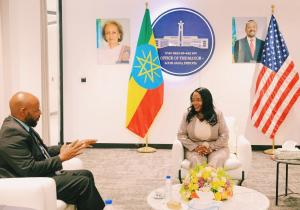
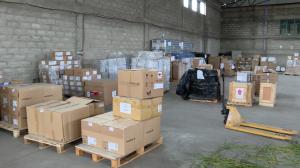
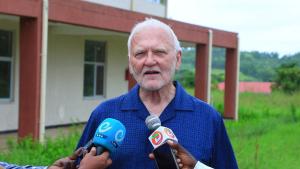
.jpg)
.jpg)



.jpg)
.jpg)

.png)
.png)
.jpg)
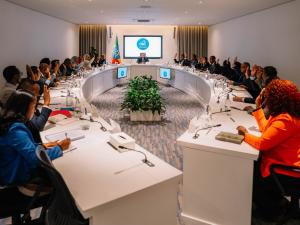
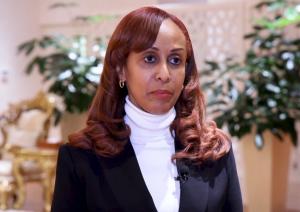
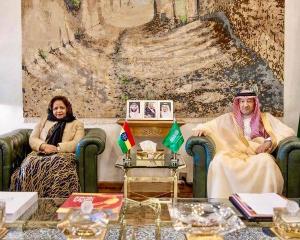
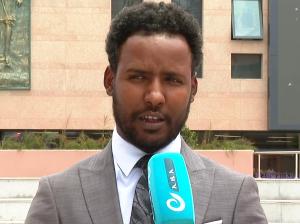
.jpg)
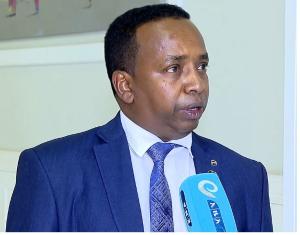
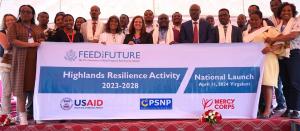
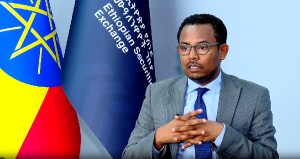
.jpg)
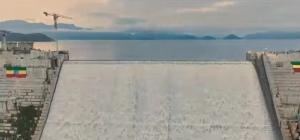
.jpg)
.jpg)
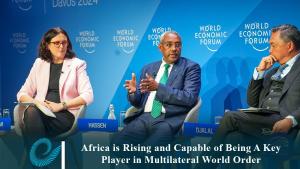

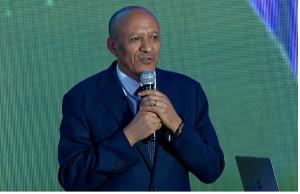



.jpg)

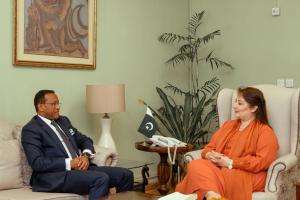
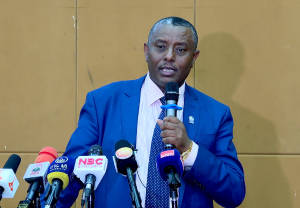
.jpg)
